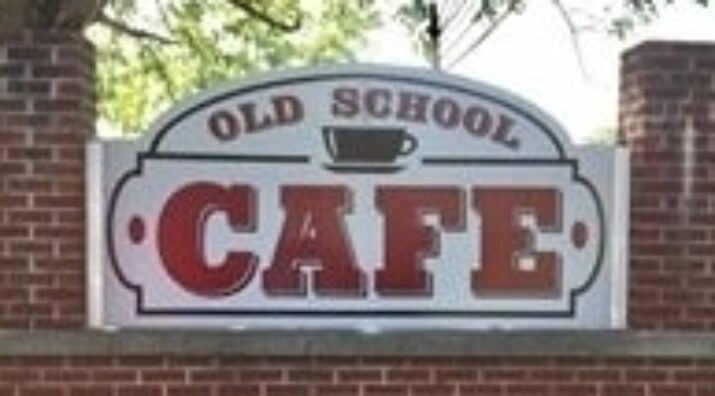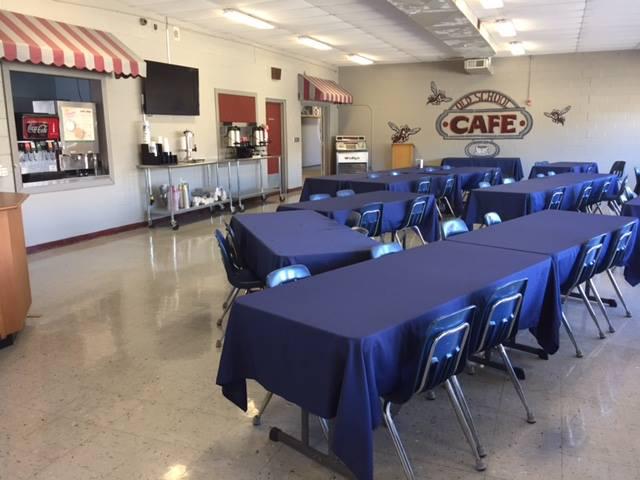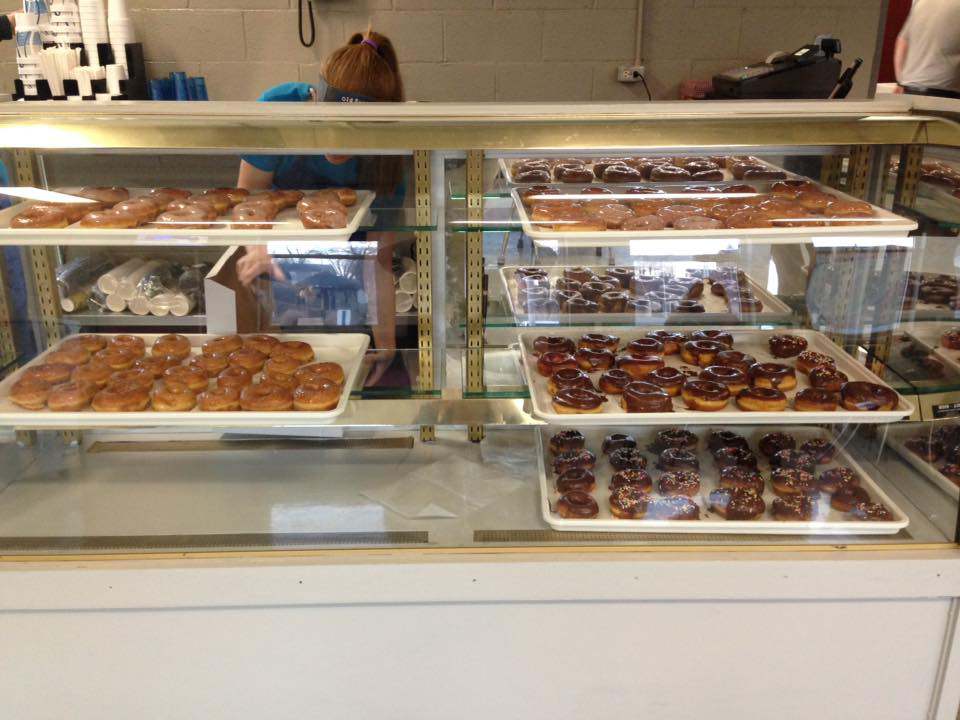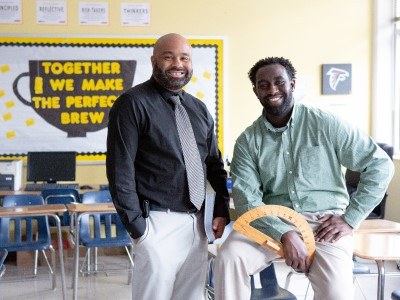Building Community
Fueling the Fire: In Kentucky, an Innovation that Honors the Past
Topics

When educators design and create new schools, and live next gen learning themselves, they take the lead in growing next gen learning across the nation. Other educators don’t simply follow and adopt; next gen learning depends on personal and community agency—the will to own the change, fueled by the desire to learn from and with others. Networks and policy play important roles in enabling grassroots approaches to change.
Practitioner's Guide to Next Gen Learning
Metcalfe County Schools is creating a community-based, authentic work experience in which students prepare for the future while honoring their community's past.
“When you shake a tree, you don’t know what will fall out. The trick is to have a basket to catch it all.”
These words from Benny Lile, Superintendent of Metcalfe County (Kentucky) Schools, capture his philosophy and approach for engaging the community in the process of rethinking schools. It was just this kind of tree-shaking that led him and community leaders to take a significant leap in implementing next gen learning without demolishing the old high school, a much-loved community asset. Here’s a hint: it involves donuts.
This edition of NGLC’s Practitioner’s Guide to Next Gen Learning is the first of a series of stories we will feature over the course of the summer. We are asking partners in the NGLC network nationwide to reflect on this past school year and tell about an event or observation that kindled their excitement about next gen learning and gave them a glimpse of what’s possible for students and communities.
The end of the school year can be a bittersweet time for educators. Even as we experience the pride of another graduation ceremony, we also feel the weight of the things that did not happen—the audacious next gen goals we did not achieve or the innovations we planned that did not pan out. Yet, if we “shake the tree” of our experiences and observations over the last year, we can also find moments of inspiration that let us see the potential for next gen learning and the worthiness of our efforts to provide it to all students.
Today we share the story of how an innovative rural school district is creating a community-based, authentic work experience in which students prepare for the future while honoring their community’s past.
The Past Informs the Future of Authentic Learning in Metcalfe County, Kentucky
Five years ago Superintendent Benny Lile returned to Metcalfe County, a district of fewer than 1,600 students, after being away for 19 years. During that time, the decision was made to close and consolidate two small elementary schools, including the one Dr. Lile attended as a boy. In rural areas like Metcalfe County, schools are often the center of civic life and community identity. Residents of all ages mourned the loss of these elementary schools. Emotions in the county ran especially high when it was determined that the next building project called for tearing down most of the old high school. Only the old cafeteria and gym would be left standing.
According to Dr. Lile, the high school “held tremendous nostalgic value for many in the community.” Much more than a building, the high school was a repository of memories—of the first dance with a future spouse, the glory of the game-winning foul shot, or the beginning of lifelong friendships around a cafeteria table.
At the same time, district educators were committed to implementing next gen learning. Metcalfe County is one of only ten “Districts of Innovation” in the state of Kentucky. To support personalized learning, every student in grades 3 through 12 will have a Chromebook next fall and access to online curriculum. However, as Dr. Lile is quick to point out, “no carpenter marvels at his hammer but rather at the work that is done.” Providing students with the tools to be successful is an important step, but putting personalized learning into practice is an organic process that requires quite a lot of conversation: with students, parents, and local industry leaders as well as educators.
For Metcalfe County, personalized learning is all about flexibility and offering students a full range of experiences to choose from. Under the leadership of principal Kelly Bell, Metcalfe County High School has developed a rigorous work-based strand that encompasses skills for career success and school-supported internships throughout the community. “That’s the beauty of a personalized learning pathway,” Dr. Lile observes. At MCHS “students don’t have to choose between taking honors classes and participating in co-op (the work-study program).”
Community Identity Meets Real-World Learning: Enter the Donuts
So the challenge facing the district was this: how might we preserve some part of a cherished community asset (the old high school building) but repurpose it to support a next gen learning model? The answer was, in fact, donuts. After two years of planning, conversations, and recipe testing, the student-run Old School Cafe opened on February 20 of this year. Housed in what was the cafeteria of the old high school, the Cafe serves hot coffee, juice, and of course fresh-baked donuts—something the community lacked until now. For adults and alumni the Cafe is a way to experience—and not just remember—their beloved school.

For the more than 20 high school students who operate the Cafe, however, it serves as the work-based component of their personalized learning. Using the e-commerce platform and curriculum created by Real World Scholars, a non-profit that supports school-based entrepreneurship, the Old School Cafe provides students with an authentic context to gain knowledge about commerce, product development, and marketing, as well as to hone skills like collaboration and communication. Let us not forget work ethic, either. Even with the high school’s flexible scheduling, by the time these young entrepreneurs arrive at school or log in to an online course at 10:00 a.m., they have been up for six or seven hours making and selling donuts to an enthusiastic public.

Next Steps for the Student-Owned Business
By community demand, the Cafe is now open on Saturdays as well as on weekdays. Starting this fall, and with the support of a USDA Farm-to-School Grant, the Cafe will offer lunches using locally sourced food, including produce grown by students in the elementary school’s greenhouses. Some students have even proposed repurposing an old school bus to add a food truck to the enterprise.
Perhaps what’s impressed Dr. Lile the most, though, is the quality and passion of the students’ conversations about the business. The young entrepreneurs’ year-end discussions about expansion, training needs, and balancing product uniformity with uniqueness echo those taking place in the board rooms of start-up businesses anywhere in the world. “When we talk of innovation and personalization, it doesn’t have to all be about STEM and bits and bytes,” he says. “Just maybe a little dough and glaze has a place in that conversation as well.”
Implications for Practitioners
Metcalfe County’s solution to a next gen learning challenge is uniquely theirs, for it draws upon the character, needs, and strengths of the people who live there. Building on years of project-based experiences like 4H and a long tradition of agriculture, the decision to open a student-operated restaurant seems, in hindsight, like a natural fit. However, it took both leadership and a great deal of listening to others in the community to make it a reality.
Though your school may not have an unused cafeteria, access to greenhouses, or the recipe for “killer” cinnamon rolls, your community probably does possess innovative ideas, skills, and other untapped resources to advance your next gen learning goals. Below are some community engagement tools and resources to support you in discovering those community assets:
Colorado Community Collaboration Toolkit, a joint project of the Colorado Department of Education, the Learning Accelerator, and the Colorado Education Initiative on leveraging community input to drive innovations
Engaging Communities in New School Design: Lessons from Cleveland Metropolitan School District, from Springpoint: Partners in School Design’s “The Launch Pad”
Getting Smart’s Five Keys to Forging Strong Parent Engagement, from Guilford County (North Carolina) Schools’ comprehensive parent engagement model
The Remake Learning Playbook, from the Pittsburgh, PA, region’s efforts to create a community-wide learning innovation network




